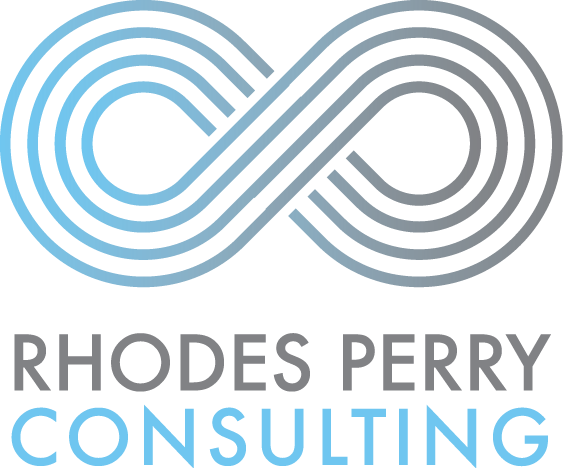10 Resources to Deliver LGBTQ Affirming Services
Earlier this month I had the privilege of presenting at Project Harmony’s 10th Annual Speaking of Children Conference in Omaha, Nebraska. I was asked to lead a series of breakout sessions helping child welfare practitioners understand the needs of LGBTQ young people in foster care settings, and the importance of delivering LGBTQ affirming services. As I made my way to Nebraska, I was unsure of how my topic would be received. After facilitating several packed sessions, I left the conference fully energized by the participants’ desire to learn more and commit to delivering the most respectful and inclusive services for LGBTQ stakeholders.
As a follow-up to the presentation, I promised attendees that I would share 10 essential resources available for those with the energy to bootstrap solutions leading to the development of LGBTQ inclusive policies, practices, and systems for large child welfare agencies. After I sent the email out to conference attendees, I realized that so many child welfare colleagues I am connected to on various social media platforms could also benefit from what’s included below. So, without further ado, please take advantage of the resources available to support your organization build more inclusive services for the LGBTQ children and young adults:
1. LGBTQ Breakout Session Handout Packets. If you’re interested in having a handy glossary of terms, concrete practices your frontline staff can apply today, along with additional resources related to all that was discussed at the Speaking of Children Conference, please be sure to download or print the LGBTQ breakout session materials here.
2. LGBTQ A-Z Certification Free Webinar. For those of you working on ways to improve your organization’s existing services for LGBTQ stakeholders, please consider registering for a complimentary webinar next Friday, May 5 at 11 am Pacific/2 pm Eastern Time. The webinar will deliver a ton of value to those change agents within your organization looking to get started on the work. Please register for the webinar here.
3. The Trevor Project Hotline. If you’re working with a LGBTQ young person (13-24) in need of crisis intervention and support services, please be sure to include the Trevor Project Lifeline (866-488-7386) as an essential 24/7/365 resource for LGBTQ young people. The organization also has live chat and text messaging services available. You may find more information about the Trevor Project here.
4. The Family Acceptance Project. FAP works to prevent health and mental health risks for LGBTQ children and young adults, including suicide, homelessness, and HIV in the context of their families, cultures, and faith communities. FAP offers research-based & culturally grounded approaches to help ethnically, socially, and religiously diverse families support their LGBTQ children. More about the project may be found here.
5. LGBTQ Institute for Family Therapy. LIFT is a ground breaking, 100-hour certification program for LMSW and LCSWs who provide therapeutic services involved with New York City’s Child Welfare System. LIFT is designed to help clinicians gain additional knowledge, skills, and confidence to reduce the rejecting behaviors of families struggling to accept their LGBTQ children. More about this program may be found here, and if your organization is interested in replicating something similar for your state please be sure to reach out to my firm.
6. The Get R.E.A.L. Network. This network is designed to connect child welfare agencies from across the country to improve the healthy sexual orientation and gender identity development for all children and young adults in the child welfare system. The Center for the Study of Social Policy leads this initiative, and the group is actively seeking new change agents from around the country to continue addressing and overcoming barriers to providing the most affirming services to LGBTQ young people. More about the network may be found here.
7. New York City’s Office of LGBTQ Policy & Practice. For concrete resources, LGBTQ specific child welfare policies, and best practice guides like the transgender and gender non-conforming resource guide, Safe & Respected, be sure to visit the NYC Administration for Children’s Services Office of LGBTQ Policy & Practice website located here.
8. RISE Initiative. The LA LGBTQ Center launched the RISE initiative in 2011 with the goal of developing a new family finding model of care to help LGBTQ young people in foster care settings thrive in loving and stable homes. The program has issued a ground breaking study that confirms that a disproportionate number of LGBTQ young people (1 out of every 5) identifies as LGBTQ. More about the program may be found here.
9. Updating Intake Forms - SOGIE Data Collection. A number of child welfare agencies seek guidance on how to update their intake forms to include standardized questions about their clients’ sexual orientation and gender identity. Recently, the Center for American Progress developed guidelines around how to get started on updating your intake forms, which may be found here.
10. Supporting Transgender & Gender Diverse Youth in Schools. Child welfare professionals continually seek strategies on how to support transgender & gender diverse youth in school settings. Several national LGBTQ organizations have developed some very helpful resources to navigate everything from pronouns and student records to bathrooms and locker rooms. The Human Rights Campaign’s Schools in Transition Guide for supporting K-12 students offers the basics, and may be found here.
If you found these resources helpful, definitely subscribe to the RPC Newsletter, where you’ll receive exclusive content like next Friday’s (5/5) complimentary webinar all about creating inclusive organizations for LGBTQ stakeholders. Register today by clicking here: http://www.rhodesperry.com/register.
Keep up the outstanding work!

